
 Our second Popeless Sunday... I have decided I will repost Benedict XVI's Sunday mini-homilies and other homilies here on the appropriate occasion. The Gospel today is the parable of the Prodigal Son, about which Benedict XVI spoke more than once, and also meditates upon in JESUS OF NAZARETH, Vol. 1. The following is his mini homily on March 14, 2010, which was also the Fourth Sunday of Lent, at which the Lectionary for the liturgical cycle prescribed the parable for the Gospel reading.
Our second Popeless Sunday... I have decided I will repost Benedict XVI's Sunday mini-homilies and other homilies here on the appropriate occasion. The Gospel today is the parable of the Prodigal Son, about which Benedict XVI spoke more than once, and also meditates upon in JESUS OF NAZARETH, Vol. 1. The following is his mini homily on March 14, 2010, which was also the Fourth Sunday of Lent, at which the Lectionary for the liturgical cycle prescribed the parable for the Gospel reading.
 ANGELUS TODAY
ANGELUS TODAY
March 14, 2010
Fourth Sunday of Lent
The Holy Father today offered a novel reflection on the familar parable of the prodigal son from the Gospel of the day. Here is what he said in English:
Today’s Gospel presents the touching parable of the prodigal son. Jesus invites us to trust in the Father’s infinite mercy and to return to him with hearts purified by repentance.
Through our Lenten observance and reception of the sacraments of Penance and the Eucharist, may we grow in sorrow for our sins and discover anew the Father’s loving embrace.
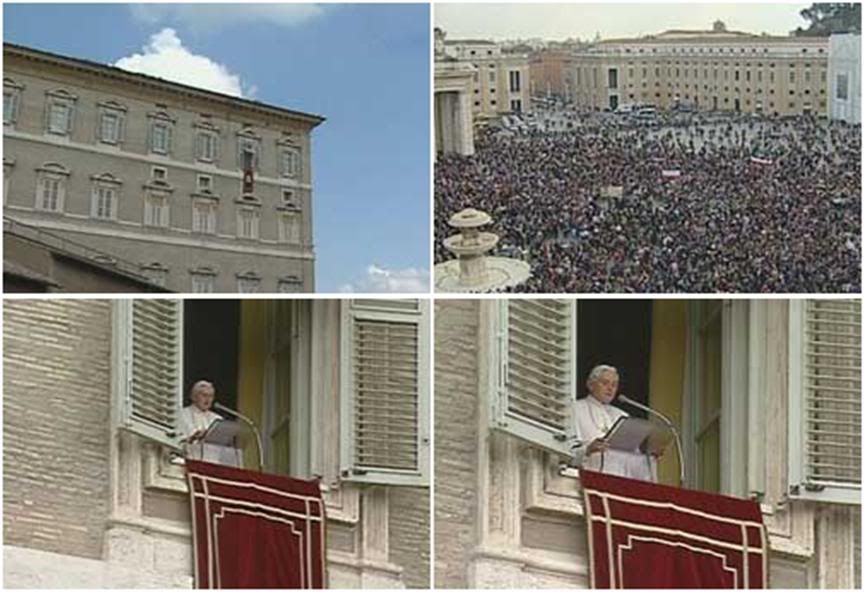
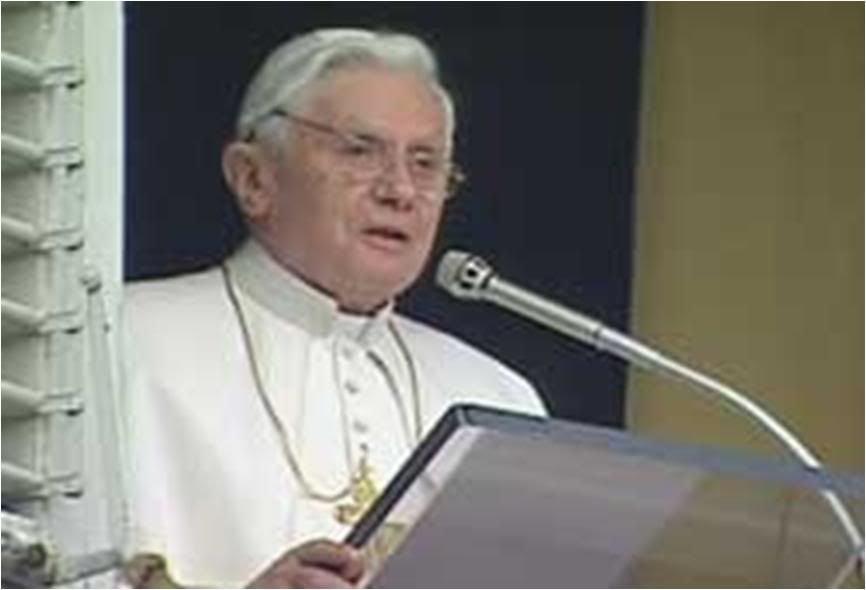 Here is a translation of the Holy Father's words before the Angelus prayers today:
Here is a translation of the Holy Father's words before the Angelus prayers today:
Dear brothers and sisters:
On this fourth Sunday of Lent, the Gospel proclaims the story of the father and his two sons, better known as the parable of the 'prodigal son' (Lk 15,11-32).
This page from St. Luke constitutes a peak of spirituality and literature of all times. Indeed, what would our culture, art, be like - and more in general, our civilization - without this revelation of God as a Father full of mercy?
The story never ceases to move us, and every time we hear or read it, it is always able to suggest new meanings. Above all, this evangelical text has the power to speak to us of God, to make us know his name, or better yet, his heart.
After Jesus has told us about the merciful Father, things are no longer as they were before. Now we know God: he is our Father, who out of love created us as free beings endowed with consciousness, who suffers if we lose ourselves and celebrates when we return.
That is why the relationship with him is analogous to a story of what happens to every son with respect to his parents: Initially, he depends on them; then he declares his independence; and finally, if his development is positive, he comes to a mature relationship with them based on acknowledgment and authentic love.
In these steps, we can also read the stages of man's journey towards a relationship with God. There can be a phase that is like childhood: when religion is motivated by need, by dependence.
Gradually as man grows up and starts to emancipate himself, he wants to be disengaged from this subjection and become free, adult, able to carry on by himself and to make his own decisions independently, even going so far as to think he can do without God.
In fact, this phase is delicate - it can lead to atheism, which, not rarely, hides the need to discover the true face of God.
Fortunately for us, God never holds back his faithfulness, and even when we distance ourselves and lose our way, he continues to follow us with his love, forgiving our errors and speaking interiorly to our conscience in order to call us back to him.
In the parable, the two sons behave in opposite ways: the younger leaves and ends up being increasingly debased, while the older nrother stays at home, but he, too, has an immature relation with his father. Indeed, when the younger one returns, the older brother is not happy as their father is. Instead, he is angry and refuses to come into the house.
The two sons represent two immature ways of relating to God: rebellion, and an infantile obedience. Both these forms can be overcome through the experience of mercy. Only when one experiences forgiveness, knowing oneself to be loved with a freely-given love, which is much greater than our poverty, greater even than our justice, only then can we finally enter into a truly filial and free relationship with God.
Dear friends, let us meditate on this parable. Let us see ourselves in the two sons, but above all, let us contemplate the heart of the Father. Let us cast ourselves into his arms and let ourselves be regenerated by his merciful love. May the Virgin mary, Mater mmisericordiae, help us in this.
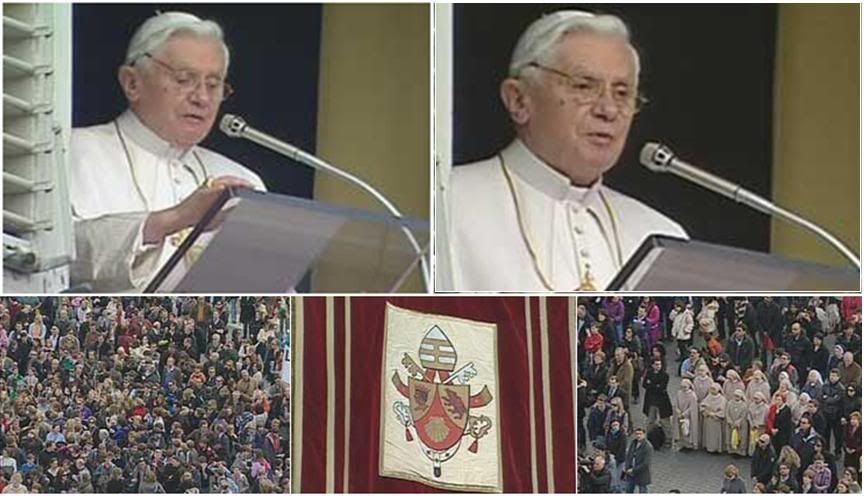
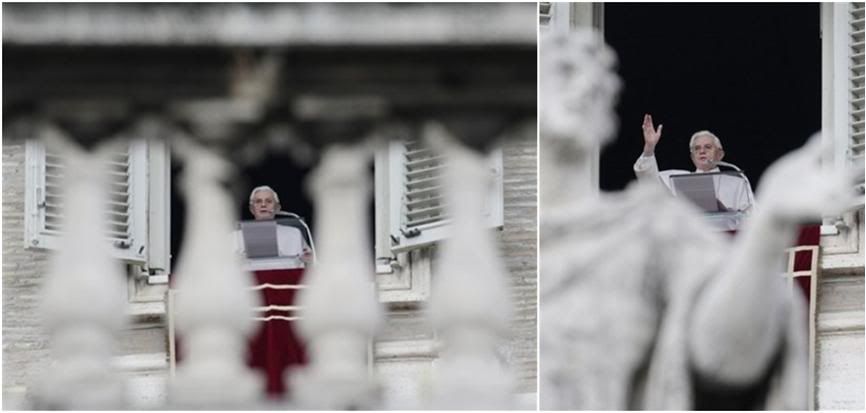
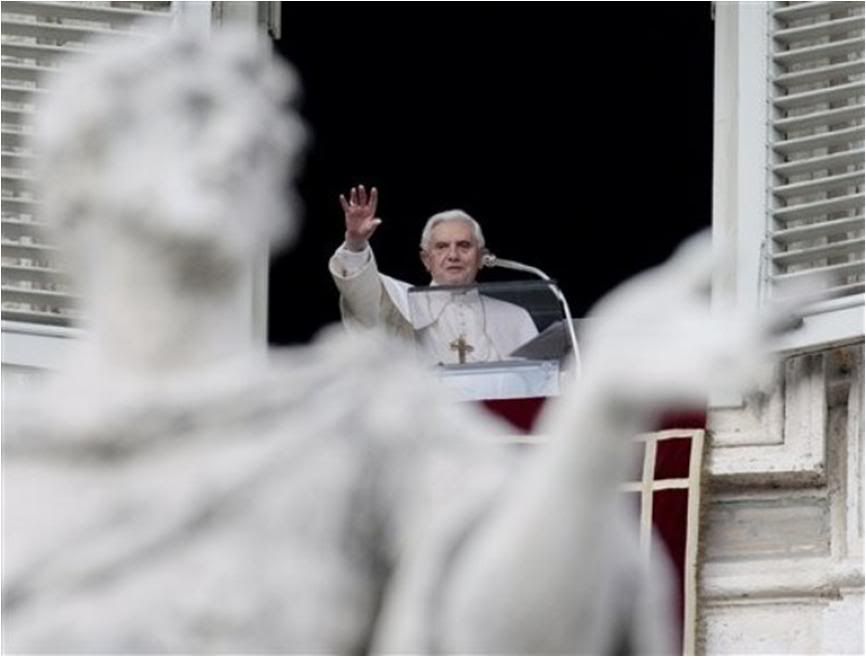

[Modificato da TERESA BENEDETTA 10/03/2013 14:41]